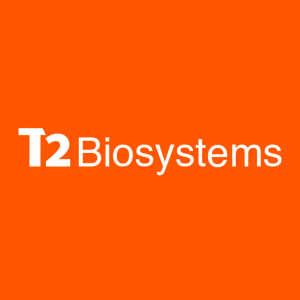T2 Biosystems Highlights New Article Published in The Lancet: Changing the Culture of Blood Culture
Rhea-AI Summary
T2 Biosystems (NASDAQ: TTOO) highlighted a recent article in The Lancet titled 'Changing the Culture of Blood Culture'. The article discusses the limitations of traditional blood culture methods and the potential of rapid, culture-independent diagnostics to improve health outcomes and strengthen global response to infectious diseases.
Key points from the article include:
- Weaknesses of blood culture, such as poor sensitivity and time-consuming process
- Ideal characteristics of culture-independent diagnostics, including rapid results and accuracy
- The need for changes in reimbursement practices and funding for new diagnostic technologies
- The importance of integrating rapid diagnostics into antimicrobial-stewardship programs
T2 Biosystems, as the only provider of FDA-cleared direct-from-blood diagnostics for rapid pathogen detection, aligns with the article's emphasis on advancing diagnostic technologies in infectious disease management.
Positive
- T2 Biosystems is the only provider of FDA-cleared direct-from-blood diagnostics for rapid pathogen detection
- The company's technology aligns with the growing demand for rapid, culture-independent diagnostics in infectious disease management
- Potential for increased adoption of T2 Biosystems' products due to highlighted limitations of traditional blood culture methods
Negative
- None.
News Market Reaction 1 Alert
On the day this news was published, TTOO declined 5.94%, reflecting a notable negative market reaction.
Data tracked by StockTitan Argus on the day of publication.
LEXINGTON, Mass., Sept. 23, 2024 (GLOBE NEWSWIRE) -- T2 Biosystems, Inc. (NASDAQ: TTOO) (the “Company”), a leader in the rapid detection of sepsis-causing pathogens and antibiotic resistance genes, today highlighted a recently published article in The Lancet, a world-leading medical journal. The article titled “Changing the Culture of Blood Culture” was authored by Sally Davies, Richard A Marfuggi, Rick A Bright, Steve Brozak, and Michael Osterholm on September 20, 2024.
“The T2 Biosystems team is commercializing the only FDA-cleared direct-from-blood diagnostics able to rapidly detect bacterial and fungal pathogens, and we applaud the authors for raising awareness of the limitations of blood culture,” stated John Sperzel, Chairman and CEO of T2 Biosystems. “As noted by the authors, rapid culture-independent diagnostics have the potential to improve health outcomes and strengthen the global response to infectious diseases, and T2 Biosystems is working to leverage our technology to further advance the field.”
The authors highlighted certain weaknesses of blood culture, the ideal characteristics of culture-independent diagnostics, how to move beyond the culture of blood culture, and how to implement rapid culture-independent diagnostics:
- Weaknesses of blood culture: blood culture has poor sensitivity, especially with low blood volumes; it is time-consuming, typically taking 24-72 hours for initial results; it is vulnerable to contamination; it has reduced effectiveness in people who have received antibiotics; and is a labor-intensive process requiring skilled technicians.
- Ideal characteristics of culture-independent diagnostics: culture-independent diagnostic tests need to display proven accuracy (i.e., sensitivity and specificity); they need to be accurate despite previous antimicrobial therapy; they need to provide results in 3-5 hours; they need to detect a range of bacterial, fungal, and antimicrobial resistance pathogens; they need to be low-cost, easy to use, and accessible; and they should have a low cross-contamination risk and low sample volume requirements.
- How to move beyond the culture of blood culture: the ongoing crisis in blood-culture availability should encourage the development and implementation of more efficient and resilient diagnostic methods. Moving beyond the culture of blood culture will require changes to reimbursement codes and practices for new diagnostic technologies. Governments, health-care systems, and private-sector entities should designate funding for new diagnostic technologies. Frugal innovation will be important in these efforts, combining state-of-the-art technologies with cost-effective solutions to make advancements accessible, even in resource-limited settings.
- Implementation of rapid, culture-independent diagnostics: rapid, accurate diagnostics should be integrated into antimicrobial-stewardship programs to enable targeted therapy. Once implemented, global collaboration is needed to share best practices, coordinate research efforts, and ensure equitable access to new diagnostics. Culture-independent diagnostics have the potential to improve health outcomes and strengthen the global response to infectious diseases.
About the T2Bacterial Panel
The T2Bacteria® Panel is the only FDA-cleared diagnostic test able to detect sepsis-causing bacterial species directly-from-blood, in just 3-5 hours, without the need to wait days for a positive blood culture. The T2Bacteria Panel runs on the FDA-cleared T2Dx® Instrument and simultaneously detects six bacterial species with
About the T2Candida Panel
The T2Candida® Panel is the only FDA-cleared diagnostic test able to detect sepsis-causing Candida species directly-from-blood, in just 3-5 hours, without the need to wait days for a positive blood culture. The T2Candida Panel runs on the FDA-cleared T2Dx Instrument and simultaneously detects five Candida species with
About the T2Resistance Panel
The T2Resistance® Panel is a CE-marked diagnostic test able to detect antibiotic resistance genes directly-from-blood, in just 3-5 hours, without the need to wait days for a positive blood culture. The T2Resistance Panel runs on the FDA-cleared T2Dx Instrument and simultaneously detects thirteen antibiotic resistance genes from both Gram-positive and Gram-negative bacterial pathogens, including KPC, OXA-48, CTX-M-14/15, AmpC (CMY/DHA), NDM/IMP/VIM, mecA/C, and vanA/B. The T2Resistance Panel is marketed and sold in Europe under a CE-mark and was granted Breakthrough Device designation from the FDA, which will provide for a prioritized FDA review process.
About T2 Biosystems
T2 Biosystems, a leader in the rapid detection of sepsis-causing pathogens and antibiotic resistance genes, is dedicated to improving patient care and reducing the cost of care by helping clinicians effectively treat patients faster than ever before. T2 Biosystems’ products are powered by the proprietary T2 Magnetic Resonance (T2MR®) technology and include the T2Dx® Instrument, the T2Bacteria® Panel, the T2Candida® Panel, the T2Resistance® Panel, and the T2Biothreat™ Panel. T2 Biosystems has an active pipeline of future products, including the U.S. T2Resistance Panel, the T2Lyme™ Panel, and the expended T2Candida Panel to add the detection of Candida auris. For more information, please visit www.t2biosystems.com.
Forward-Looking Statements
This press release contains forward-looking statements within the meaning of the Private Securities Litigation Reform Act of 1995. All statements contained in this press release that do not relate to matters of historical fact should be considered forward-looking statements, including, without limitation, statements regarding the ability of T2 Biosystems’ products to rapidly detect bacterial and fungal pathogens and the potential of rapid culture-independent diagnostic tests to improve health outcomes and strengthen the global response to infectious diseases; and the likelihood that the expansion of the T2Candida pediatric testing claim will allow clinicians to improve outcomes and reduce cost by achieving faster targeted antifungal treatment for their pediatric patients, as well as statements that include the words “expect,” “may,” “should,” “anticipate,” and similar statements of a future or forward-looking nature. These forward-looking statements are based on management’s current expectations. These statements are neither promises nor guarantees, but involve known and unknown risks, uncertainties and other important factors that may cause actual results, performance or achievements to be materially different from any future results, performance or achievements expressed or implied by the forward-looking statements, including, but not limited to, (i) any inability to (a) realize anticipated benefits from commitments, contracts or products; (b) successfully execute strategic priorities; (c) bring products to market; (d) expand product usage or adoption; (e) obtain customer testimonials; (f) accurately predict growth assumptions; (g) realize anticipated revenues; (h) incur expected levels of operating expenses; or (i) increase the number of high-risk patients at customer facilities; (ii) failure of early data to predict eventual outcomes; (iii) failure to make or obtain anticipated FDA filings or clearances within expected time frames or at all; or (iv) the factors discussed under Item 1A. “Risk Factors” in the Company’s Annual Report on Form 10-K for the year ended December 31, 2023, filed with the U.S. Securities and Exchange Commission, or SEC, on April 1, 2024, and other filings the Company makes with the SEC from time to time, including our Quarterly Reports on Form 10-Q and Current Reports on Form 8-K. These and other important factors could cause actual results to differ materially from those indicated by the forward-looking statements made in this press release. Any such forward-looking statements represent management’s estimates as of the date of this press release. While the Company may elect to update such forward-looking statements at some point in the future, unless required by law, it disclaims any obligation to do so, even if subsequent events cause its views to change. Thus, no one should assume that the Company’s silence over time means that actual events are bearing out as expressed or implied in such forward-looking statements. These forward-looking statements should not be relied upon as representing the Company’s views as of any date subsequent to the date of this press release.
Investor Contact:
Philip Trip Taylor, Gilmartin Group
ir@T2Biosystems.com
415-937-5406









